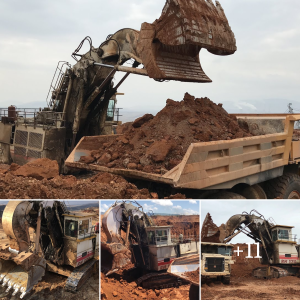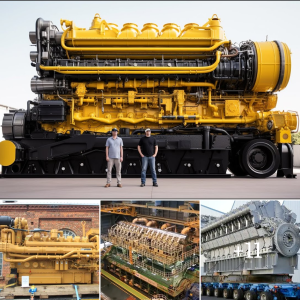While freak storms and rising sea levels are all around us. But we often only think of these impacts in terms of how they affect humans, such as in damages hurricanes or wildfires cause. A new documentary takes a different approach, with a specific eye toward how animals are reacting to climate change.
“Evolution Earth,” which premiered on PBS on September 6, is narrated by evolutionary biologist and features titles like “Islands,” “Heat,” “Ice” and “Grasslands.” One could be forgiven for thinking “Evolution Earth” is a standard nature documentary. Yet every animal captured in the series, from the polar bears to the white hares, is in one way or another responding to humanity’s ongoing burning of fossil fuels, which is dangerously heating up the globe and

“Evolution Earth” does not chronicle these animals simply to tell a story or perhaps to glorify nature. Instead the docuseries has a subtler message: Nature is miraculous and capable of repairing itself. Animals are smarter and more resilient than we appreciate, and are capable of bouncing back from climate change.
This is a compelling, even uplifting story, and one that “Evolution Earth” tells with breathtakingly vivid and colorful cinematography. To better understand the genesis of the documentary Salon spoke with the managing director of Passion Planet and the co-series producer, David Arnold.
The following interview has been lightly edited for clarity and length.
What made you take an interest in this subject?
“It’s a very difficult thing to do without sort of descending into complete doom and gloom.”
Well, we’ve had a long relationship with PBS doing films like this. We did a series called “Earth: A New Wild,” which was similar in this vein. We had another one about water called “H2O: The Molecule That Made Us” and a couple of feature docs as well. It’s all really trying to tell the story of conservation with that kind of natural history fascination that people have, We’re trying to string together solutions and hope that’s what our kind of films really specialize in.
It’s a very difficult thing to do without sort of descending into complete doom and gloom. I would would say the programs tend to blitz one way or the other. The docs tend to say either what we call sort of blue chip behavior, and not doing anything other than presenting the planet as this sort of wonderful chocolate box of wildlife, or you get conservation shows which are sort of very dire and sort of difficult to watch. We try and bridge that gap in a way, try and sort of exploit that niche.

When I watch a show like this, I want to understand the impact of climate change as if I was visiting these places myself, even though I have not done so. I thought “Evolution Earth” did that effectively. My question for you is, what do you think it teaches us about climate change?
That climate change is changing the world is becoming apparent wherever you live. I’m no longer trying to convince our audience that climate change is happening. You just have to look outside the window, whether you’re in America, Europe or wherever. It’s sort of becoming increasingly apparent.
“I’m no longer trying to convince our audience that climate change is happening. You just have to look outside the window, whether you’re in America, Europe or wherever.”
What’s great about these shows is they do have a kind of arc. If you watch all five, you go through the journey all the way through to our final show “Grasslands.” It just starts to hint at nature’s resilience and ability to react, given a chance. Some of those stories are extraordinary, but in our big conclusions toward the end of the “Grasslands” episodes and the “Ice” episode, and sort of hinting in the “Heat” episode as well, is that you really start to see there are some big, big impacts we can make by just allowing nature to repair itself.

And that doesn’t just repair biodiversity, it starts to repair the planet. In particular, the episodes like “Grasslands” sort of start to suggest that repairing our grasslands can have as big an effect for us helping global warming as [repairing] the Amazon does. And that’s a really exciting proposal.
Likewise, there’s a sort of message within the “Ice” episode that allowing the natural systems back into play will help those sort of feedback loops — or, rather, it’s more frightening in terms of if you take out those natural systems, you can get runaway climate change. You can get to disastrous consequences. But we were really, really happy to find some of those bigger picture messages that really start to make sense for us in terms of repair and rewilding and how much effect that can have for sure.





